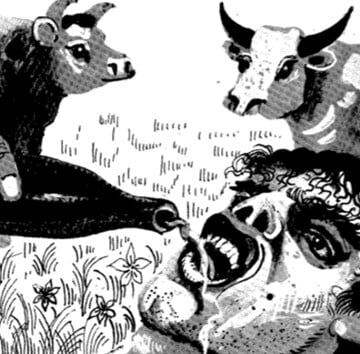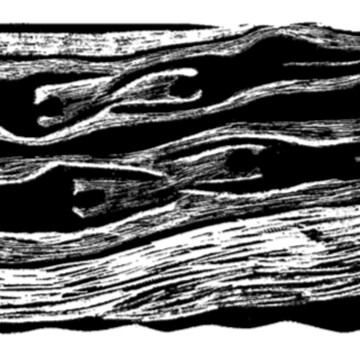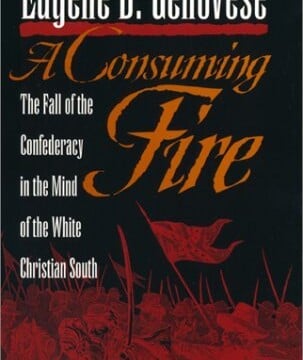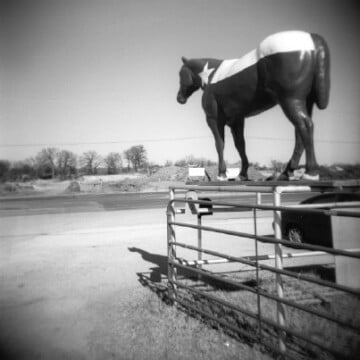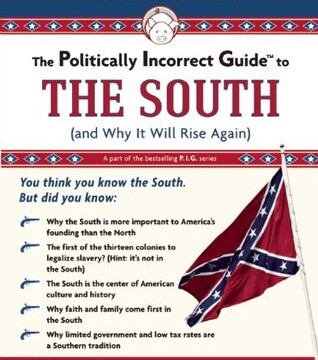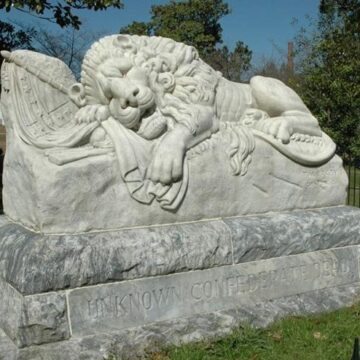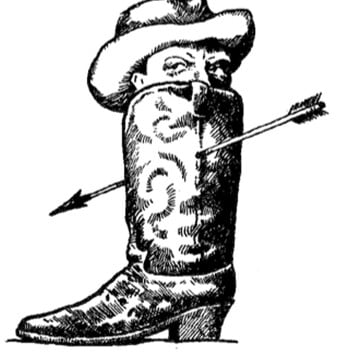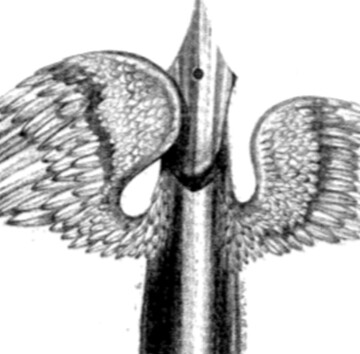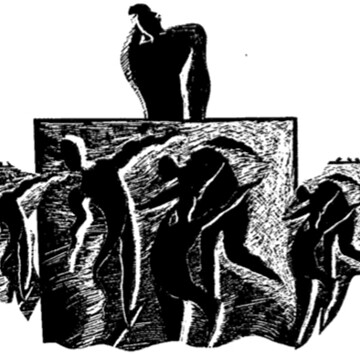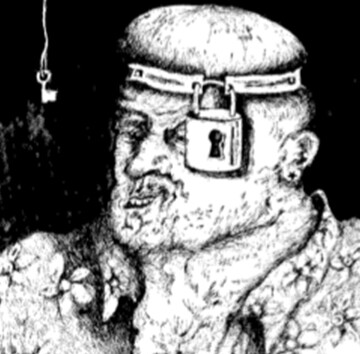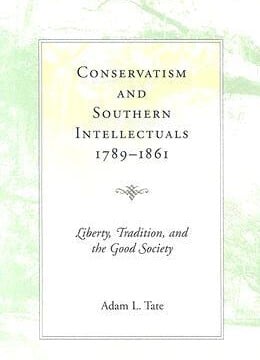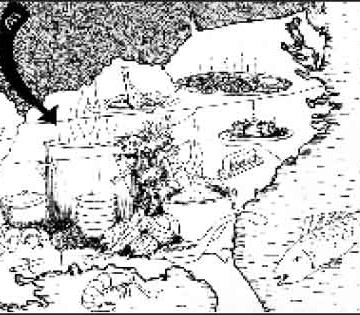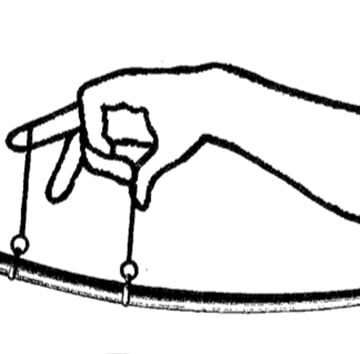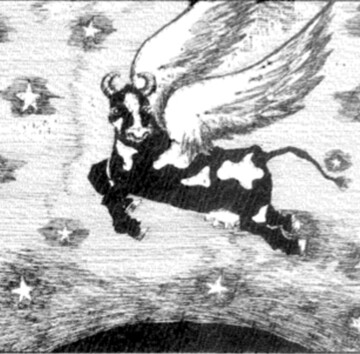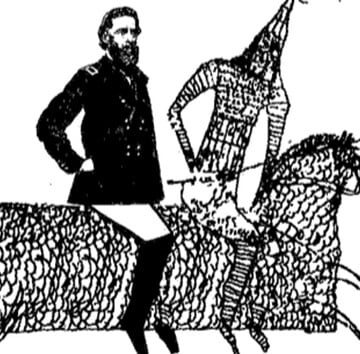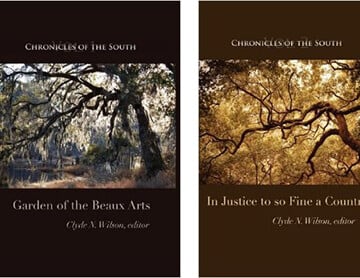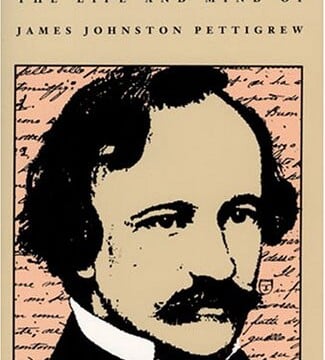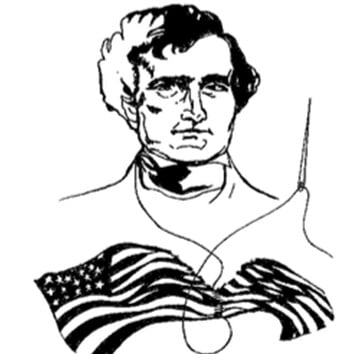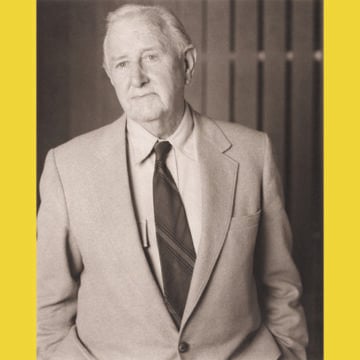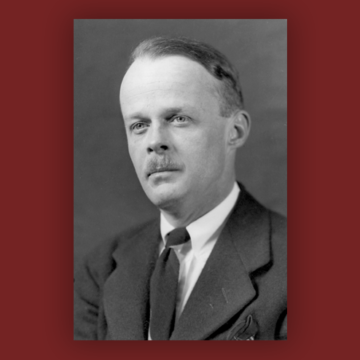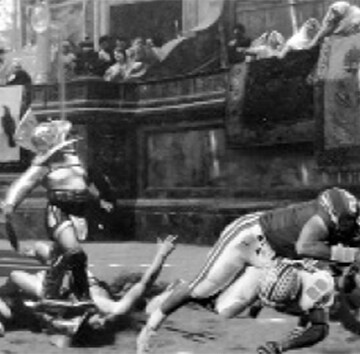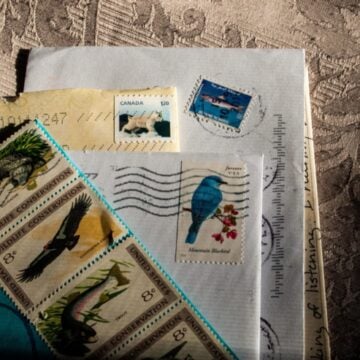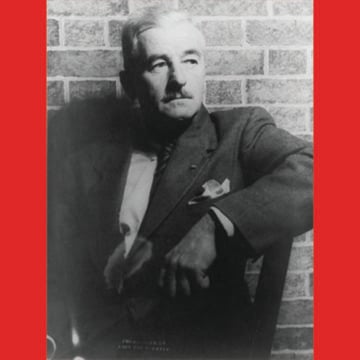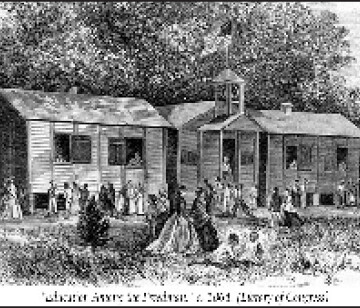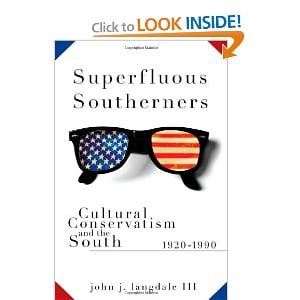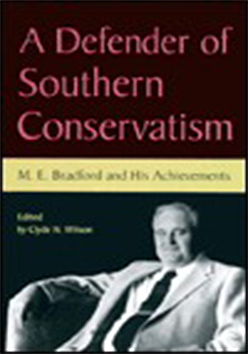I have a more or less professional interest in Southern regional magazines. Some I’ve written for, others I’ve written about, one or two I’ve cribbed from—one way or another a few subscriptions and the odd newsstand purchase wind up as deductions on my income tax. Whatever else these magazines may be, they’re all part of...
2674 search results for: Southern%2525252525252525252BHeritage
The Celtic Heritage of the Old South
Southerners are not like other Americans. Significant cultural differences have always separated them from the North. Even today cultural variations between Southern black and white people are fewer than those between white Southerners and white Northerners. In other words, the population of the United States is more divided culturally along regional lines than along racial...
Editing the South: The Final Chapter
The plot so far: Southern magazine, a winsome fresh-faced newcomer from Little Rock (played by Debbie Reynolds) falls heavily in debt. Her notes are picked up by Southern Living, an immensely wealthy Alabamian (Larry Hagman), who carries her off to Atlanta, where he soon abandons her for Southpoint, a wicked city girl (Joan Collins). Got...
Editing the South, Part II
Last fall Howell Raines griped amusingly in The New York Times Book Review about “the Southern Living disease,” an affliction that leads Southerners to depict their region “as one endless festival of barbecue, boiled shrimp, football Saturdays, and good old Nashville music.” The three million of us who subscribe to that “relentlessly cheerful” house-and-garden magazine...
Time and the Tide in the Southern Short Story
Perhaps since the War Between the States itself, and certainly since the literary Southern Renascence became conscious of itself in the 30’s and 40’s, educated Southerners, and Southern writers especially, have taken their sense of history as a point of pride. Now, as the end of the century approaches, one may be tempted to wonder...
In With the In-Crowd: Talkin’ Trash, Spendin’ Cash
A joke going around down here asks why Southern women don’t like group sex. The answer: too many thank-you notes. You know of course that I wouldn’t besmirch the pages of a family magazine with such smut if it didn’t speak directly to this month’s topic. (No, not group sex. This isn’t the Penthouse Forum,...
A Conversation Around Southern Poetry
Kelly Cherry and Henry Taylor met at the University of Virginia in 1960, where he was a first-year undergraduate and she was a graduate student in philosophy. After he got over feeling inferior because the difference in their ages is only a few months, not enough to account for an entire undergraduate career, they began...
Christianity and Slavery in the Old South
“Slavery is as ancient as war, and war as human nature.” —Voltaire Americans, with their strong tendency to externalize the evil within them and to project it onto others, have been waging crusades to extirpate or crush one kind of evil or another for almost 200 years now. The Pelagian belief...
Where the South Meets the West
Oh, I’m a good old Rebel, That’s just what I am. And for this damned Republic, I do not give a damn! I’m glad I fought agin it, I only wish we’d won, And I don’t want no pardon, For anything I done! —Maj. James Randolph, CSA Not long ago, Texas Gov. Rick Perry...
Dixie for Dummies
“Disguise the fact as you will, there is an enmity between the Northern and Southern people that is deep and enduring, and you never can eradicate it—never!” —Alfred Iverson Many Chronicles readers are probably already familiar with Reg-nery’s Politically Incorrect Guides (P.I.G.) series, two of which have achieved best-seller status in recent years. Currently, there...
Pietas and the Southern Agrarians
Pietas—the ancient virtue of respect for family, country, and God—is becoming increasingly difficult to practice in a nation driven half mad by guilt. Our nation’s past, once uncritically revered, is now uncritically condemned. Families are regarded as breeding pens of bigotry. And God is forever sticking His nose into areas where He does not belong,...
Pietas and the Southern Agrarians
From the December 2000 issue of Chronicles. Pietas—the ancient virtue of respect for family, country, and God—is becoming increasingly difficult to practice in a nation driven half mad by guilt. Our nation’s past, once uncritically revered, is now uncritically condemned. Families are regarded as breeding pens of bigotry. And God is forever sticking His nose...
No Capitulation: A Call to Southern Conservatives
The following speech critical of the conservative establishment is one that I did not give at The Charleston Meeting, in Charleston, S.C., whither I was invited by its organizer Gene d’Agostino, as a speaker for the evening of April 14. After espying copies of my book on antifascism for sale on a table in the...
Tar and Feathering the South
Demonization as a political and social stratagem knows no temporal or geographical bounds; it is a ploy as old as civilization itself. The objective of the game is to dehumanize an opponent (an individual or a group) in order to gain public support for his marginalization or destruction. Modern America abounds with examples of the...
Southern Men, American Persons
“Sweet home Alabama / Where the skies are so blue.” It has been many years since anyone made money from patriotic songs dedicated to Illinois or New Jersey. Chicago and New York have their anthems of course, to say nothing of San Francisco, but no one is going to get into a fight over “the...
Anarchy and Family in the Southern Tradition
For this issue of Chronicles we have assembled the thing in and of itself, examples of Southern literature as it is here and now, a couple of appropriate poems and a work of fiction by one of the South’s finest writers, together with some good talk about contemporary letters in the South. I would rather...
Music for Southern Independence
Every form of original American music in the 20th century began in the South: bluegrass, country, western, jazz, blues, rockabilly, and rock ’n’ roll. Even rap, pop, and heavy metal have been successful because they, in some way, use or imitate a Southern musical element. These styles, if they can be called that, started out...
Mr. Lincoln’s War: An Irrepressible Conflict?
“[T]he contest is really for empire on the side of the North, and for independence on that of the South, and in this respect we recognize an exact analogy between the North and the Government of George III, and the South and the Thirteen Revolted Provinces. These opinions…are ...
Hillbillies and Rednecks
“Taake my word for it, Sammy, the poor in a loomp is bad.” —Tennyson Two professors at Mississippi State University, a sociologist and a communicationist, have decoupaged their observations, experiences, and intrapsychic projections into a “phenomenological analysis” of The Southern Redneck. If their work has any redeeming social value, it is as a kind of...
Felix Culpa
This sprawling and densely written 400-page study of Southern political thought, from Old Republicans John Taylor of Caroline and John Randolph of Roanoke down to Whig social theorists (and humorists) John Glover Baldwin and Johnson Jones Hooper—with wedged-in discussions of such other Southern luminaries as Nathaniel Beverley Tucker, St. George Tucker, William Gilmore Simms, and...
Southern Gastronomical Unity
Why don’t y’all try to guess—go ahead—which American region, in its unofficial anthem, celebrates food. Answer? The South. Permit me, Suh: Dar’s buckwheat cakes and Injun batter, Makes you fat or a little fatter, Look away! Look, away! Look away! Dixieland. You see? We have been in the eating business a long time down here,...
An Infantile Disorder
“Why, we could lick them in a month!” boasts Stuart Tarleton soon after the Confederates fire on Fort Sumter in Margaret Mitchell’s Gone with the Wind. “Gentlemen always fight better than rabble. A month—why, one battle.” At that point, young Mr. Tarleton is interrupted by Rhett Butler, a rather darker character in Mitchell’s novel than...
Capture the Flag, Part I
In an earlier letter I cheered my buddy Chris’s suggestion that announcements at the 1996 Atlanta Olympics be given in both Southern and Yankee English but pointed out that on preliminary form Atlanta’s civic leaders are unlikely to cotton to the idea. I didn’t mention another of Chris’s proposals, one they’re guaranteed to like even...
The South and the New Reconstruction
Atlanta, the self-styled “capital of the New South” and the host of the annual debauchery known as “Freaknik,” was a natural to host the 1996 Olympics. The quadrennial event has become a giant block party to celebrate the smiley-face aspects of the New World Order: universal brotherhood, multiculturalism, diversity, and tolerance. But amidst the revelry...
Maryland, the South’s Forgotten Cousin
As recently as the 1930’s, elderly black people in rural Maryland were still keeping headstrong children in line with the admonition that something called “pattiroll” would “get” them if they didn’t behave themselves. “Pattirolls,” or patrols, were gangs of Union Army soldiers who rode throughout the moonlit countryside enforcing curfews in occupied Maryland during the...
In the Land of Cotton
“The harvest is past, the summer is ended, and we are not saved.” —Jeremiah When we write of Southern rural life (as when we write of Southern speech, manners, history, or literature) we essay a phenomenon significantly different from that which would normally be suggested were the modifier “Southern” to be replaced by “American.” In...
Goodbye, Dixie
For a brief moment in Hartford, Connecticut, on October 6, 1996, the fondest dreams of Southern conservatives seemed to have come true. Republican presidential candidate Bob Dole was debating President Clinton. Perhaps “debating” is the wrong word. In the awkward and disjointed style of discourse that now seems typical of GOP presidential candidates, Dole was...
Space Invaders: Part I
As Americans continue their flight to the South from the regions that they’ve already ruined, I continue to monitor the low-intensity conflict between Yankee settlers and Southern natives. This public service is needed, I think, because we just don’t know much about what’s going on. Foundations and government agencies tended to see Southern migration to...
Space Invaders: Part II
Last spring, my friend Dick, a history professor here, was riding in a Long Island airport limousine when it stopped to pick up another passenger, an elderly lady burdened with luggage and confronted by a garden gate that wouldn’t open. After watching her struggle for a while, Dick’ got out and gave her a hand....
Fightin’ Words
Perhaps you heard something of the furor evoked down here a couple of years ago when it was reported that a speech pathologist in Chattanooga, one Beverly Inman-Ebel, was conducting a class for those who wished to shed their Southern accents. (That’s how the news stories put it. One could as well say, of course,...
Honor, Violence, and Civilization
For evidence that academics miss the obvious, look no further than the 1996 study by two Midwestern psychologists on the proclivity of white Southern males to resort to violence when their honor is challenged. What a surprise! Psychologists Richard Nisbett (University of Michigan) and Dov Cohen (University of Illinois at Urbana-Champaign) conducted a series of...
A Southern Foison
In the Introduction to the first of these two volumes, Clyde Wilson allows, after a few paragraphs of justified complaint against the wholesale academic and political assault on Southern identity as well as Southern culture, that it was not always thus. “Southerners were seen as different and perhaps a little quaint, but tolerated as Americans.”...
A Representative Man
“A well-written life is almost as rare as a well-spent one.” —Thomas Carlyle Even in these dreariest of days in academia, when American history has largely become a plaything for canting ideologues, the Old South continues to attract outstanding talent. Fine books and articles continue to appear, as Clyde Wilson’s Carolina Cavalier attests, notwithstanding the...
Southern White Trash
Surely anyone looking at film with an eye to understanding American pop culture or, for that matter, American serious culture, lately, would have to be intrigued by the recent spate of “whitetrash flicks.” Every season over the past three years seems to have produced its brace of movies set in either the South or a...
Franklin Pierce and the Fight for the Old Union
If Franklin Pierce is remembered at all today it is as an inept, do-nothing President whose only accomplishment was to sign the Kansas-Nebraska Act of 1854. Historians generally cite this bill, along with the 1857 Supreme Court decision in the Dred Scott case, as evidence of the aggressive designs of the South to extend slavery...
Divided Loyalties
James Cobb admirably assesses the loyalties of C. Vann Woodward, one of the most influential historians of the 20th century, whose best-known books explored the rise of the New South and the emergence of the Jim Crow regime.
A Southern Braveheart
Ride With the Devil Produced by Ted Hope, Robert F. Colesberry, and James Schamu Directed by Aug Lee Screenplay by James Schamus Released by Universal Pictures and Good Machine It can be argued that the War Between the States began not at Fort Sumter but along the Missouri-Kansas border in the mid-1850’s. The passage of...
Remembering Allen Tate: Radical Conservative
A French woman who met the American poet Allen Tate (1899-1979) in the 1930s remarked, “Monsieur Tate is so conservative that he’s almost radical.” Etymologically, “radical” fits Tate well; his conservatism entailed returning, in the face of destructive social practices, to fundamental truths and the established customs embodying them, many immemorial. He espoused the primacy...
Making Hay with the Southern Sun
Posthumously, William Faulkner has achieved a celebrity that, if we take him at his word, he despised and eschewed, but which seems inseparable from modem commercial culture. Every second man in the street, who can’t remember who is currently Vice-President, recognizes Faulkner’s name as that of a famous writer. Every lumpen intellectual who once read...
Deconstructing Miss Dixie
College-football season has begun again in the South. Here in Alabama, football is more like a religion than a sport. Having both attended and taught at The University of Alabama from the 1970’s through the 1990’s, I was at ground zero of college-football fanaticism, and I must confess that I still like the excitement. But...
Polemics & Exchanges: October 2022
Correspondence on Paul Gottfried's speech about Southern conservatives and Taki's article, "End of Empire, End of Manners."
The Barefooted Faulkner
Faulkner’s work was deeply embedded in the oral tradition of the south, and has a strong sense of place.
Education to the Rescue
In the early 1900’s, Reconstruction studies (excluding the work of W.E.B. DuBois) approved quick restoration of states, Andrew Johnson’s strict constitutionalism, and white Southerners’ revolt against military and Republican rule (which consisted of carpetbaggers, scalawags, and freedmen). These studies—named the “Dunning School” for historian William A. Dunning, whose students applied his interpretation to individual Southern...
Falling Off the Turnip Truck
“And somewhere, waiting for its birth, / The shaft is in the stone.” —Henry Timrod Searching for the “Southern quality” once identified by Marshall McLuhan can be an absorbing and rewarding quest. After all, the South is a vast and varied region, one that has, as things go in this country, a lot of history...
Capture the Flag, Part II
We have it on good authority that the peacemakers are blessed, and that’s only fair, because we sure catch hell in this world. Not long ago I suggested that most Southerners who display the Confederate flag are not bigots and got some hate mail to the effect that only a bigot could believe that. Last...
The Agrarian Burden
Recently, the Intercollegiate Studies Institute hosted a panel discussion on the “great books of conservatism,” among which was Richard Weaver’s 1948 work Ideas Have Consequences. The title, as one panelist noted, has become something of a catchphrase on the right, even as the memory of Weaver and his own influences, the Southern Agrarians, fades into...
Man’s Best Friend and Other Brutes
Highbrows like Chronicles readers may not know a television program called Americas Funniest Home Videos, but it’s just exactly what it sounds like. A story in Newsweek last year reported that the program’s staff were surprised to discover regional differences in the tapes that viewers send in. According to a man who screens submissions, the...
The Treasury of Counterfeit Virtue
“O wad some Pow’r the giftie gie us To see oursels as others see us!” —Robert Burns A few years ago, a well-known conservative historian lamented that the American public was not morally engaged to undergo sacrifice after the September 11 attacks, unlike it was in its heroic response to Fort ...
The Treasury of Counterfeit Virtue
“O wad some Pow’r the giftie gie us To see oursels as others see us!” —Robert Burns A few years ago, a well-known conservative historian lamented that the American public was not morally engaged to undergo sacrifice after the September 11 attacks, unlike it was in its heroic response to Fort Sumter and Pearl Harbor....
M.E. Bradford and the Barbarism of Reflection
“The hours of a wise man are lengthened by his ideas.”—Joseph Addison This is the first critical study of M.E. Bradford, whose untimely death in 1993 silenced the most eloquent voice ever raised on behalf of the permanent things as they are revealed in the Southern tradition. It would be a...
